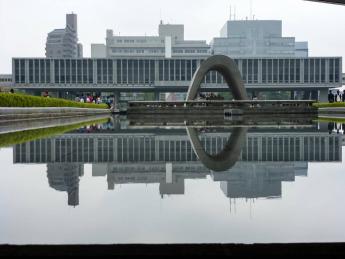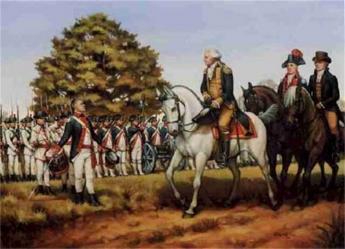Related Topics
Right Angle Club: 2015
The tenth year of this annal, the ninety-third for the club. Because its author spent much of the past year on health economics, a summary of this topic takes up a third of this volume. The 1980 book now sells on Amazon for three times its original price, so be warned.
Tony Junker; Peace Museum

|
| Tony Junker |
The Right Angle Club was once again honored by a recent talk by Tony Junker, the novelist, retired architect, Center City resident -- and now the leader in an effort to start a Peace Museum. He's a Quaker, as Philadelphians would easily guess, and a charming peace advocate. He tells us his specialty while a practicing architect, was designing museums, so the whole thing starts to fit together. The museum is still in the planning stages, hoping to raise two million dollars as start-up money. Needless to say, Philadelphia has a long history of Quaker advocacy for Peace. It is not saying too much to suppose William Penn designed his whole colony as a peace demonstration. And Tony began his talk by noting that in England, Penn's father remains much better known than his son.
William senior conquered the island of Jamaica and gave it to King Charles, in return for which the King repaid his debt by giving the admiral's son Pennsylvania. On his deathbed, the Admiral beseeched his king to look after his rebellious and somewhat disobedient son; this was King Charles' way of doing it. By the way, he had distinguished himself with successful administration of New Jersey before the King gave him Pennsylvania, and acquired what is now the state of Delaware, somewhat later. With these three states, he became the largest private landowner in our history -- ever. He makes the Klebergs of the King Ranch look pretty paltry by comparison, and indeed Charles even offered to make him a vassal king. Young William, however, told him that really wasn't the idea, at all. Young Penn sold land to his suspicious co-religionists, and in order to facilitate the sales, drew up a document called, Concessions and Agreements , which was in considerable part a model for America's Constitution. It can be found in the Archives of the State of New Jersey, in Trenton.

|
| The Peace Museum |
The Peace Museum is projected to open in a few years; it would be a great mistake to underestimate Tony's ability to get it started. Since his retirement, he has founded a Quaker retirement community on Front Street which is already in existence. It's open to non-Quakers of course, and there are quite a few Quaker retirement villages in the suburbs. But Philadelphia is returning to Center City, and the need for a retirement home has often been expressed but never implemented until Tony came along. Early Quakers lived in caves along the banks of the Delaware River, just about where the retirement village is situated, and Quaker settlement later concentrated along Arch Street. Arch Street, by the way, really had an arch. Evidently, the river was once much deeper and somewhat wider, so it had one embankment which began at Front Street and a lower one on Water Street. So as the town grew, it was natural to undercut a tunnel with an arch bearing Front Street. Many houses eventually had one door on Water Street and another door on Front Street, higher up. Relics of Quaker settlement can still be noticed on Arch Street, cut off by the Benjamin Franklin Parkway slanting Northward. Front and Arch was the location for the main anchorage in those days, and the London Tavern at Front and Market was the main hangout of sailors off the ships nearby, a rich source of gossip and the origin of a number of rebellious episodes. The Fifteenth Street Meetinghouse now seems to be the most westward sign of this Quaker settlement, but Isaac Sharpless bought the land of Friends Select School further west and shared the land between Friends Select and his high-rise headquarters of what was the Pennwalt headquarters. If you are planning a Quaker museum in Center City, you can find plenty of choices to be called historic Quaker property, along Arch Street. The still earlier Quaker settlements around Dock Creek, beginning at about Spruce Street, have long been outgrown and abandoned.
Unfortunately, although we experienced long periods of Peace during the Nineteenth Century, it must be admitted that Penn's hope for an example of peaceful existence to the rest the world, would have to be called a failure. We have had several major foreign wars during the Twenty-first century, and show every sign of preparing for more. The Quakers literally owned a major portion of the American colonies and withdrew from politics rather than vote for war taxes in the Revolutionary War. While the example of courageous conscientious objection had its impact, it also developed an image of martyrdom which the rest of the world declines to imitate. Friends are perfectly capable of forming their own opinions, but it might be suggested to them that more of their efforts would be successful if somehow they made more publicity of their successes.

|
| Whiskey Rebellion |
George Washington, for example, was effective in keeping us out of foreign entanglement, in large part by the fact that he was a famous athlete and a successful warrior. His example for the country was in effect, "If you are strong, people leave you alone." He was surely successful in achieving a peaceful settlement of the Whiskey Rebellion by saddling up his horse and riding at the head of 10,000 troops in a threatening manner. Later in his presidential administration, he was surely more effective in dealing with European powers because of his former military reputation than he would have been without it. His second inaugural address was in effect a plea that good things could emerge from self-interest: Honesty is the best policy. There's a primitive quality to this appeal, reminding his countrymen they are more likely to get rich if they were honest, than if they were dishonest. Purists may squirm at the undertones of this motto, but surely it was effective with his countrymen. And three-quarters of the world's population might still be better off if they adopted a motto which falls just a little short of being altruistic.
Originally published: Friday, February 20, 2015; most-recently modified: Thursday, June 06, 2019